Sea-based sources
Marine litter originating from fishing and fisheries, aquaculture and shipping
Plastic originating from work activities at sea is one of the major sources of marine litter along the Norwegian coast.
Marine litter that is found in the sea originates not only from land but also from sea-based sources. Sea-based sources include fishing and fisheries, aquaculture, shipping, recreational fishing and other sources, such as tourism. Plastic that is released, dumped or lost from ports, along the coast or out at sea constitutes litter or pollution from sea-based sources. This often refers to tools and equipment from the maritime industry.
Marine litter is also a global problem, as it creates pollution and cause harm to wildlife. There are also a number of unanswered questions, such as the long-term consequences microplastics have on us and on marine life. What we do know is that the sea is facing immense pressure due to climate change and environmental impact. Accordingly, marine plastics are another of the problems that contribute to a critical overall impact on the sea. It is therefore crucial that we take action, implement effective measures and coordinate our efforts to clean up and prevent marine litter.
Hi, did you drop something?
Pieces of rope, cut-offs and smaller pieces of plastic constitute a serious litter issue in Norway. Together, we can do something about this.
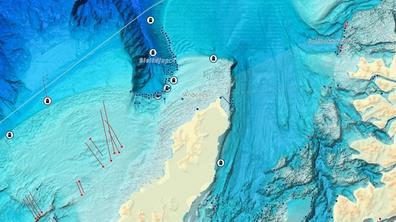
An ocean of data possibilities
What could mapped data tell us about ghost fishing and clean-ups? Let’s dive into the ocean of data.
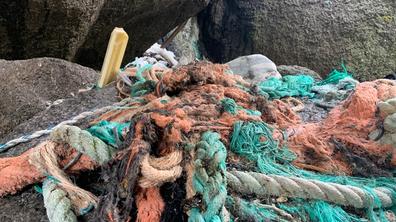
New report: The extent of sea-based litter is significant
In 2021, the Norwegian Centre against Marine Litter investigated the discharge of macroplastics from the fishing and aquaculture industries. The report has now been published.
Theme: fishing and fisheries
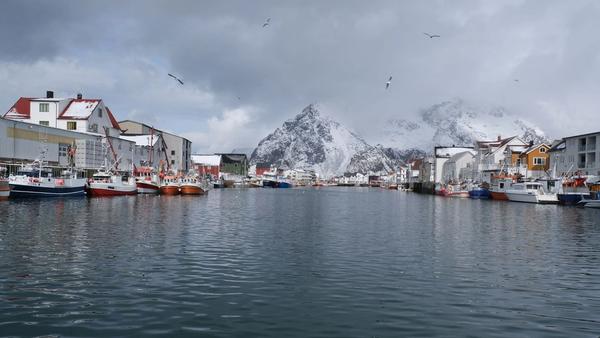
Good waste management in fishing harbours can prevent ocean plastics from fisheries
Measures that both fishermen and researchers believe will solve the problem of fishery waste.
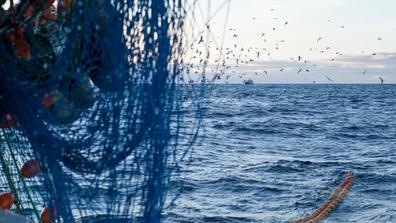
Stuck in a net of marine litter?
Fisheries and aquaculture contribute with seafood to a world that needs healthy food. On the other hand, the tools they use, such as nets, fish pots, ropes and net cages, are a considerable part of marine litter. We are fishing for the good solutions.
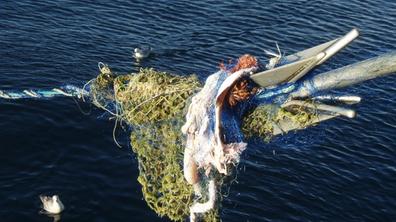
The fight against ghost fishing
Lost fishing equipment leads to marine litter, which in turn entails a risk of ghost fishing. Clean-ups and preventive measures are being carried out nationally and internationally to eliminate the problem.
Clean-up of marine litter from sea-based sources
Search for knowledge regarding litter originating from sea-based sources
Theme shipping: plastic pellets
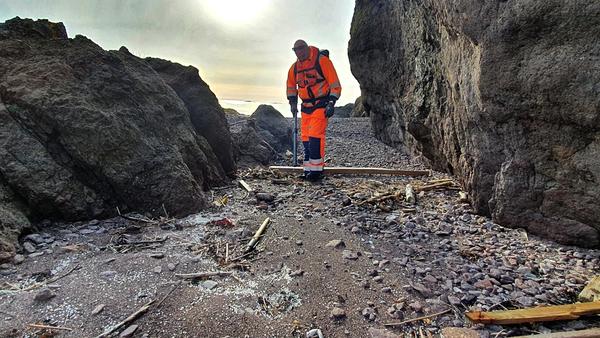
Pellets overboard – experiences from a plastics discharge
In February 2020, 13.2 tonnes of plastic pellets ended up in the sea during transport. This led to findings on Norwegian beaches and resulted in an extensive clean-up operation.
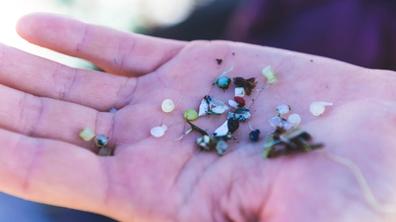
What are plastic pellets?
Facts about plastic pellets and why they end up in the sea.
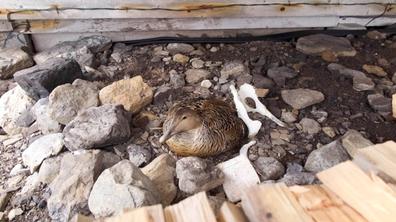
Environmental impacts of plastic pellets in the sea
Pellets that end up in the sea can have consequences for marine life and coastal life.
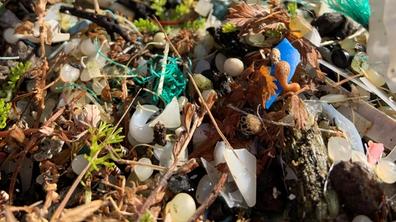
Measures against plastic pellets nationally and internationally
The key to preventing plastic pellets from ending up in the sea is optimal preventive measures.

